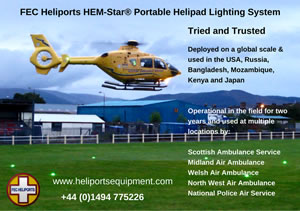Boeing Defense, Space & Security2009-03-16 07:38:57
Future Combat Systems Unmanned Vehicles Complete Preliminary Design Reviews
Boeing and Science Applications International Corp., together the Lead Systems Integrator for the U.S. Army's Future Combat Systems (FCS) modernization program, today announced that the program has successfully completed preliminary design reviews (PDR) for all its unmanned vehicle systems (UVS).
The UVS Integrated Product Team (IPT) completed the five PDRs ahead of the FCS System-of-Systems (SoS) PDR scheduled for later this spring. The SoS PDR will assess the integration of the program's individual platforms into a complete SoS architecture and help establish baselines for developing prototypes.
"The FCS One Team and our Army partners have taken a big step toward a successful System of Systems review this spring," said Gregg Martin, Boeing vice president and FCS program manager. "Each of these unmanned systems plays a critical role in providing soldiers with greater surveillance, reconnaissance and logistical capabilities to increase their effectiveness and survivability on the battlefield."
The FCS platforms reviewed in the PDRs were the Multifunctional Utility/Logistics Equipment (MULE) family of vehicles and its Autonomous Navigation System (ANS); the Small Unmanned Ground Vehicle (SUGV); the Class I Unmanned Aerial System (UAS); and the Class IV Unmanned Aerial Vehicle (UAV).
The MULE and ANS reviews were completed in fiscal year 2008 and included all three MULE variants: the MULE-Transport, the MULE-Countermine and the Armed Robotic Vehicle-Assault (Light).
The UVS IPT and partner iRobot conducted the SUGV PDR at the iRobot facility in Bedford, Mass., in October.
"The combined government and industry team has done an excellent job in developing a design that meets our requirements and has produced the supporting evidence needed to make this a successful review," said Alan Walls, director for Unmanned Vehicle Systems. "With the completion of this event, we have taken another important step in getting the advanced capability of the SUGV into the hands of our soldiers."
The UVS IPT and partner Honeywell International conducted the Class I UAS PDR at the Boeing facility in St. Louis in late November.
"I am pleased with the progress we have made in the Class I UAS," said Glenn Morris, LSI program manager for Class I. "The system's laser target designator will provide a tremendous capability to the soldier, and the team did a great job of preparing for this review."
Finally, the UVS team and Northrop Grumman Corp. Unmanned Systems successfully conducted the Class IV UAV PDR at the Boeing facility in St. Louis in December.
"The Class IV PDR review is the culmination of a great deal of hard work by the team and the whole FCS program," said Doug Jaspering, LSI team lead for UAV. "We are in really good shape as we move into the detailed design phase, and fully expect to have our prototypes ready for qualification testing on schedule in fiscal year 2011."
Boeing and Science Applications International Corp., together the Lead Systems Integrator for the U.S. Army's Future Combat Systems (FCS) modernization program, today announced that the program has successfully completed preliminary design reviews (PDR) for all its unmanned vehicle systems (UVS).
The UVS Integrated Product Team (IPT) completed the five PDRs ahead of the FCS System-of-Systems (SoS) PDR scheduled for later this spring. The SoS PDR will assess the integration of the program's individual platforms into a complete SoS architecture and help establish baselines for developing prototypes.
"The FCS One Team and our Army partners have taken a big step toward a successful System of Systems review this spring," said Gregg Martin, Boeing vice president and FCS program manager. "Each of these unmanned systems plays a critical role in providing soldiers with greater surveillance, reconnaissance and logistical capabilities to increase their effectiveness and survivability on the battlefield."
The FCS platforms reviewed in the PDRs were the Multifunctional Utility/Logistics Equipment (MULE) family of vehicles and its Autonomous Navigation System (ANS); the Small Unmanned Ground Vehicle (SUGV); the Class I Unmanned Aerial System (UAS); and the Class IV Unmanned Aerial Vehicle (UAV).
The MULE and ANS reviews were completed in fiscal year 2008 and included all three MULE variants: the MULE-Transport, the MULE-Countermine and the Armed Robotic Vehicle-Assault (Light).
The UVS IPT and partner iRobot conducted the SUGV PDR at the iRobot facility in Bedford, Mass., in October.
"The combined government and industry team has done an excellent job in developing a design that meets our requirements and has produced the supporting evidence needed to make this a successful review," said Alan Walls, director for Unmanned Vehicle Systems. "With the completion of this event, we have taken another important step in getting the advanced capability of the SUGV into the hands of our soldiers."
The UVS IPT and partner Honeywell International conducted the Class I UAS PDR at the Boeing facility in St. Louis in late November.
"I am pleased with the progress we have made in the Class I UAS," said Glenn Morris, LSI program manager for Class I. "The system's laser target designator will provide a tremendous capability to the soldier, and the team did a great job of preparing for this review."
Finally, the UVS team and Northrop Grumman Corp. Unmanned Systems successfully conducted the Class IV UAV PDR at the Boeing facility in St. Louis in December.
"The Class IV PDR review is the culmination of a great deal of hard work by the team and the whole FCS program," said Doug Jaspering, LSI team lead for UAV. "We are in really good shape as we move into the detailed design phase, and fully expect to have our prototypes ready for qualification testing on schedule in fiscal year 2011."
For more information contact:
P.O. Box 516
St. Louis
MO 63166
United States Of America
Tel: +1 206 655 2121
Fax: +1 (61) 295 014 489
